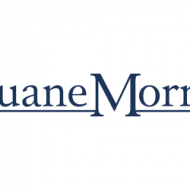The Upcoming Firestorm Facing Employers Regarding Vaccines

Duane Morris LLP
December 15, 2020
Alerts & Updates
Update: On December 16, 2020, the Equal Employment Opportunity Commission released guidance on COVID-19 vaccinations, including employer mandates for the vaccine. Duane Morris will cover this development in an Alert to be published soon.
With the Pfizer-BioNTech COVID-19 vaccine approved for emergency use authorization by the Food and Drug Administration and the CDC and approval of the Moderna COVID-19 vaccine expected imminently, America is seeing light at the end of the very long tunnel that has been the pandemic. Accordingly, many employers have begun to consider whether they should have a mandatory COVID-19 vaccination policy to protect employees and return to some normalcy in the workplace. An employer’s decision to require employee COVID-19 inoculations as a condition of workplace entry raises a number of legal, evidentiary and practical issues.
Initially, employers should recognize that the COVID-19 vaccine is not expected to be widely available to the general population until spring or summer 2021. The CDC’s Advisory Committee on Immunization Practices has initially recommended healthcare personnel and residents of long-term care facilities receive the COVID-19 vaccine first. Workers in essential and critical industries, individuals with underlying medical conditions and older adults are being considered by the CDC as next in line. Accordingly, in most workplaces, vaccination mandates will not be an option for many months to come. When vaccinations do start to become available to employees, not all employees will be eligible to receive them at the same time.
But once vaccines are routinely available, can an employer lawfully require vaccinations? Alternatively, can an employer lawfully fail to do so? May an employer make a decision on this issue unilaterally, or must it bargain over it with a union if its employees are represented by one? What if employees band together to refuse to be vaccinated based upon concerns about their safety and health? And, if a vaccination is required, how will an employer actually know if the employee has complied with this mandate? These are some of the many challenges that employers will need to grapple with and, in most cases, address on an individual basis after considering their industry, geographic location, employee population, particular sensitivities and unionization status.
CONTINUE READING
Share







